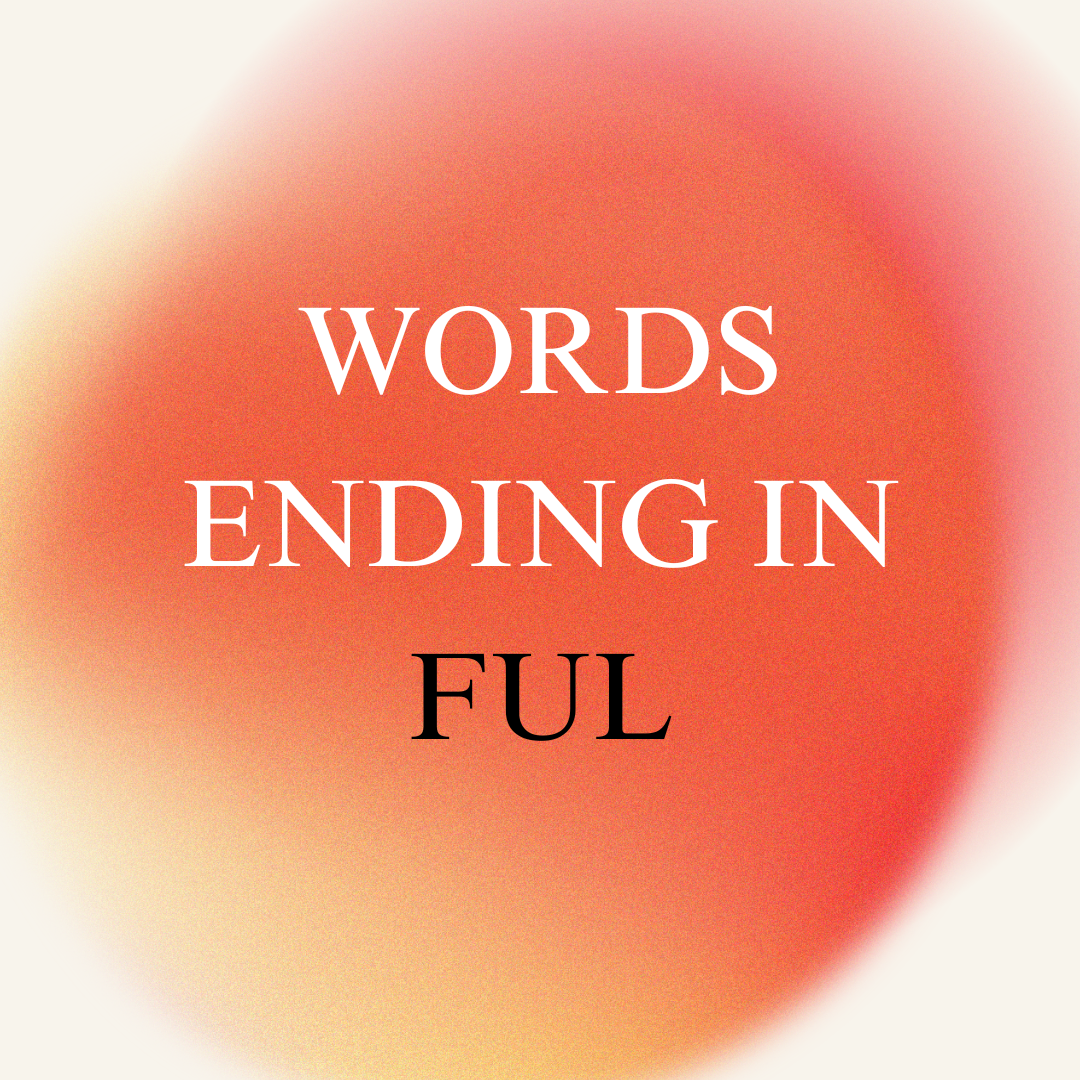The suffix “-ful” is a common ending in English that transforms nouns into adjectives, often implying “full of” or “characterized by.” In this blog, we’ll explore:
1. Suffix -ful meaning
2. 20 words ending in -ful
3. Positive words ending in -ful
4. 5-letter, 4-letter, and 7-letter words ending in -ful
Let’s dive in!
Suffix Ful Meaning?
The suffix ful meaning is:
“Full of” (e.g., joyful = full of joy)
“Having the qualities of” (e.g., masterful = having mastery)
“Capable of” (e.g., forgetful = likely to forget)
Grammar Note: When forming a word with -ful, the spelling often remains unchanged (hope → hopeful), though some words lose their final -e (awe → awful).
20 Words Ending in Ful
Here is a list of 20 words ending in ful:
Beautiful – Pleasing to the senses
Wonderful – Inspiring delight
Playful – Full of fun
Strong – Having strength
Thankful – Feeling obliged
Happy – Full of joy
Damaging – Damaging
Considerate – Thoughtful
Vibrant – Colorful
Cautious – Careful
Successful – Successful
Bad – Awful
Uncertain – Doubtful
Afraid – Fearful
Creative – Fanciful
Skilled – Masterful
Sad – Sorrowful
Easily forgetting – Forgetful
Respectful – Showing respect
Diplomatic – Tactful
Positive Words Ending in Ful
The following are 5 positive words ending in ful:
Happy
Encouraging
Calming
Grateful
Capable
Learn English with one of the finest online english speaking course in India.
5 Letter Words Ending in Ful
List of 5 Letter Words Ending in Ful:
Awful
Joyful
Soulful
Foulful (rare)
4 Letter Words Ending in Ful
List of 4 Letter Words Ending in Ful:
Note: There are no normal 4 letter words ending in -ful (as the suffix is 3 letters by itself).
7 Letter Words Ending in Ful
List of 7 Letter Words Ending in Ful:
Hateful
Wasteful
Tasteful
Wakeful
Bashful
How to Use -Ful Words in Sentences
She gave a joyful laugh.
Be careful with that glass!
His masterful performance won applause.
Common Mistakes with Ful Words
❌ Incorrect: “Full” as a suffix (e.g., beautifull)
✅ Correct: Drop the extra -l (e.g., beautiful)
Conclusion
Words ending in ful enrich English by adding descriptive power. Whether you’re writing poetry, essays, or daily messages, these adjectives help express emotions and traits vividly.
